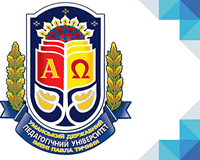Please use this identifier to cite or link to this item:
https://dspace.udpu.edu.ua/handle/123456789/16786| Title: | FOREIGN EXPERIENCE OF FORMING INFORMATION AND DIGITAL COMPETENCE OF FUTURE TEACHERS |
| Other Titles: | ЗАРУБІЖНИЙ ДОСВІД ФОРМУВАННЯ ІНФОРМАЦІЙНО-ЦИФРОВОЇ КОМПЕТЕНТНОСТІ МАЙБУТНІХ УЧИТЕЛІВ |
| Authors: | Тітова, Любов Олександрівна |
| Keywords: | Information and digital competence Інформаційно-цифрова компетентність Digital competence Цифрова компетентність Future teachers Майбутні учителі Future teacher education Професійна підготовка майбутнього вчителя Digital competence framework Рамка цифрових компетентностей DigComp DigCompEdu |
| Issue Date: | 2024 |
| Publisher: | Видавнича група «Наукові перспективи» |
| Citation: | Titova L. Foreign experience of forming information and digital competence of future teachers. Вісник науки та освіти. 2024. № 4(22). С. 714–723. URL: https://doi.org/10.52058/2786-6165-2024-4(22)-714-723. |
| Series/Report no.: | УДК;378.017:004-047.22](100):[378.018.8:373.011.3-051](045) |
| Abstract: | The article reviews and analyzes the foreign experience of forming the information and digital competence of future teachers. The article analyzes the Pan-European Digital Competence Framework (DigComp 2.0) and the Digital Competence Framework for Educators (DigCompEdu), which are to some extent fundamental in many European studies related to the formation of digital competencies of future professionals, including in the field of education. In particular, it is noted that DigComp 2.0 includes five competencies: information and digital literacy, communicative digital literacy, digital content creation, security in the digital environment, and problem-solving in the digital environment. While DigCompEdu contains six competencies: professional engagement, digital resources, teaching and learning, assessment, empowerment of students, and promotion (facilitation) of the development of students’ digital competence. It is also worth noting that each of the competencies is divided into sub-competencies, each of which is characterized by six levels of formation (beginner, researcher, integrator (specialist), expert, leader and pioneer) and «professional statements», which, in our opinion, will contribute to a better understanding of the phenomenon of «digital competence» and its capabilities to ensure the effectiveness of the educational process. The article considers some approaches to the definition of the term «digital competence» by foreign researchers. The article focuses on the key trends in foreign experience of forming digital competencies of future teachers. In particular, the concepts of «general digital competence» and «professionally oriented digital competence» are distinguished and it is emphasized that the latter is determined by the ability to appropriately select, plan and use information and communication technologies in professional pedagogical activities to ensure an accessible and effective educational environment. The paper also emphasizes that one of the key steps to the formation of information and digital competence is the teacher’s understanding of its essence and importance for professional activity. У статті розглянуто та проаналізовано зарубіжний досвід формування інформаційно-цифрової компетентності майбутніх учителів. Проаналізовано Загальноєвропейську рамку цифрових компетентностей (DigComp 2.0) та Рамку цифрових компетентностей освітян (DigCompEdu), які є певною мірою основоположними у багатьох європейських дослідженнях, що стосуються формування цифрових компетентностей майбутніх фахівців, зокрема і в освітній галузі. Зокрема зазначено, що DigComp 2.0 включає п’ять компетенцій: інформаційно-цифрова грамотність, комунікативна цифрова грамотність, створення цифрового контенту, безпека в цифровому середовищі та рішення проблем у цифровому середовищі. Тоді як DigCompEdu містить шість компетенцій: професійне залучення, цифрові ресурси, викладання та учіння, оцінка, розширення можливостей здобувачів, сприяння (фасилітація) розвитку цифрової компетентності здобувачів освіти. Варто також зазначити, що кожна з компетенцій поділена на підкомпетенції, кожна з яких характеризується шістьма рівнями сформованості (новачок, дослідник, інтегратор (спеціаліст), експерт, лідер та піонер) та «професійними твердженнями», що на нашу думку сприятимуть кращому розумінню освітянами феномену «цифрова компетентність» та її можливостей для забезпечення ефективності освітнього процесу. Розглянуто окремі підходи до визначення терміну «цифрова компетентість» зарубіжними дослідниками. У статті закцентовано увагу на ключових тенденціях закордонного досвіду формування цифрових компетентностей майбутніх учителів. Зокрема виділено поняття «загальна цифрова компетентність» та «професійно спрямована цифрова компетентність» та наголошено на тому, що другу визначає саме вміння доцільно добирати, планувати та використовувати інформаційно-комунікаційні технології у професійній педагогічній діяльності для забезпечення доступного та ефективного освітнього середовища. Також у праці наголошено на тому, що однією з ключових сходинок до формування інформаційно-цифрової компетентності є розуміння вчителем її сутності та важливості для професійної діяльності. |
| Description: | https://doi.org/10.52058/2786-6165-2024-4(22)-714-723 |
| URI: | https://dspace.udpu.edu.ua/handle/123456789/16786 |
| Appears in Collections: | Факультет фізики, математики та інформатики |
Files in This Item:
| File | Size | Format | |
|---|---|---|---|
| Тітова Зарубіжний досвід формування ІЦК.pdf | 2,74 MB | Adobe PDF | View/Open |
Items in DSpace are protected by copyright, with all rights reserved, unless otherwise indicated.

